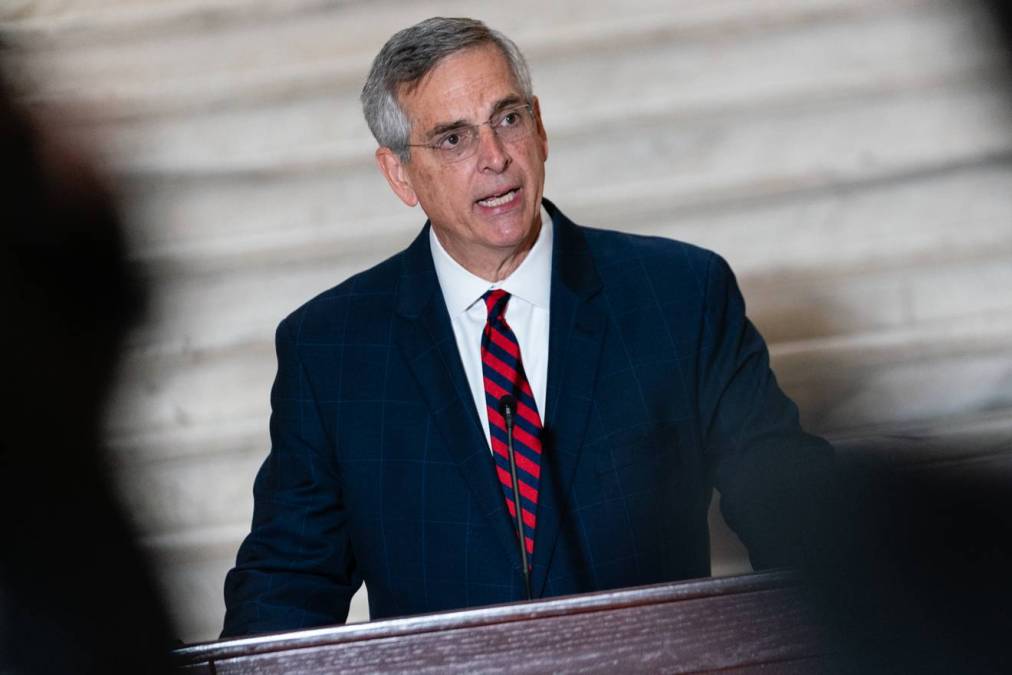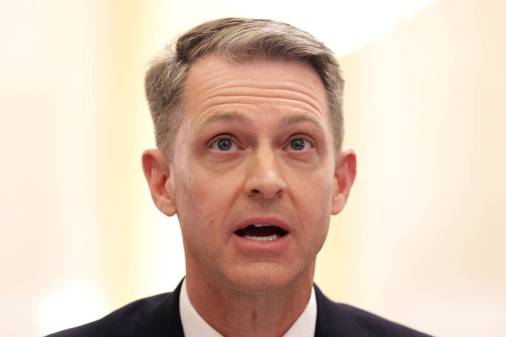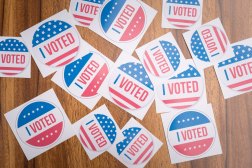Georgia secretary of state wants easier access to immigration data to verify voter citizenship

Georgia Secretary of State Brad Raffensperger on Monday asked the Department of Homeland Security to allow states and local election officials to use federal immigration data to conduct voter citizenship verification.
In a letter addressed to DHS Secretary Kristi Noem, Raffensperger requested that state and local governments be allowed access to data from the Systematic Alien Verification for Entitlements, or SAVE, program, a service administered by DHS’s U.S. Citizenship and Immigration Services that allows government agencies to check DHS’s immigration records, for a fee, to verify the citizenship or immigration status of applicants seeking benefits or licenses.
The service is used by more than 1,200 agencies that provide health care benefits, Social Security, education grants and assistance, state driver’s licenses, ID cards, and occupational and professional licenses.
In his letter, Raffensperger asked Noem to consider four improvements to the service, adding that allowing states and local election officials to use DHS data for verifying citizenship for voter registration would bolster election integrity.
“The current framework, while valuable to state efforts to improve election integrity, presents challenges for state election officials. These challenges include data access limitations, financial shortcomings, and outdated records that present usability issues,” Raffensperger wrote in the letter. “Enhancing the SAVE database would provide a better tool to assist states in confirming citizenship status of voter registration applicants.”
The first change Raffensperger suggests is to allow database searches using personal information, such as date of birth, Social Security number, driver’s license number or other information obtained during voter registration. Searches via SAVE currently require an alien registration number or other DHS receipt number, which Raffensperger said are often difficult to obtain.
Raffensperger also suggested DHS ensure its immigration database is updated frequently so the SAVE program “does not lag in updating newly naturalized citizens.” He suggested DHS allow states to use SAVE for free for citizenship verification and that it provide better guidance on how and when state election offices can use SAVE.
Increased access
While some states have received approval to use SAVE to verify their voter rolls — such as Florida, which has used SAVE for elections since 2012 — only 10 states, including Georgia, have agreements with USCIS to use it to cross-reference voter data. In October Raffensperger shared that an audit of the state’s of voter rolls, which had used SAVE data, found that 20 of Georgia’s 8.2 million registered voters were not U.S. citizens, and none of them had cast a ballot in the 2024 general election.
The spotlight on the SAVE program has only grown over the last year amid claims from Donald Trump that non-citizens were voting in the 2024 general election at the encouragement of Democrats. The claims have led Republican-led states to up demands on DHS to make it easier for states to use SAVE data to verify voter registrations.
Last October, 16 state attorneys general authored a letter to former DHS Secretary Alejandro Mayorkas claiming that by not allowing states to verify voter registration information with the federal data, the department was violating its congressional charge. Later that month, Florida, Texas and Ohio sued DHS and members of the Joe Biden administration for access to SAVE for voter registration. Several of the suits are still making their way through the courts.
In a statement on X about his state’s lawsuit, Texas Attorney General Ken Paxton accused the previous administration of shirking federal law.
“The Biden-Harris Administration has refused to comply with federal law, presenting yet another obstacle for Texas to overcome in ensuring free and fair elections in our state,” Paxton wrote. “The law demands that they provide important information regarding the citizenship of nearly half a million potentially ineligible voters.”
In an effort to combat “noncitizen voting,” federal lawmakers this year reintroduced the Safeguard American Voter Eligibility Act, or SAVE Act, which would require all Americans to prove their citizenship statuses by presenting documentation in-person when registering to vote or updating their voter registration information.
“I believe that by enhancing the SAVE program, DHS can better support state election officials in their duty to maintain accurate voter rolls while protecting the rights of all eligible citizens,” Raffensperger wrote in his letter. “Modernizing the system to improve accessibility, reduce costs, and ensure timely updates — particularly for naturalized citizens — would be a significant step toward strengthening both election security and public confidence in our electoral processes.”






